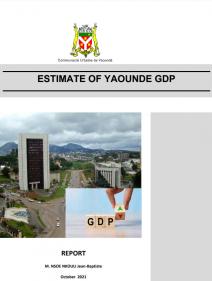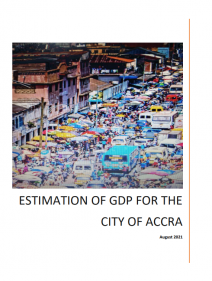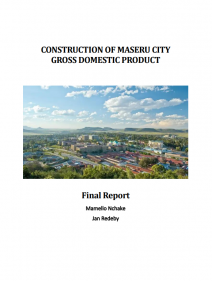Africa is undergoing a rapid urban transition and has the world’s highest rate of urban growth. By 2030, half of Africa’s population will be living in cities. This transition is not just demographic but also has major economic and fiscal consequences. Already, cities concentrate economic activities and outputs generating a substantial proportion of Africa’s GDP.
Cities also offer distinct potential to drive economic growth and social development in good balance with environmental targets if they are well-planned and managed to enable productivity and efficiency. Yet, city GDP has hardly been measured in Africa in systematic, recurring, and robust terms to inform policy targeting and investment decisions in cities. To date, there have been limited efforts and progress on city GDP estimation in the region despite its critical role in informing better urban planning and management, as well as national economic policy making. Not having this important economic size estimate is a major hinderance to policy making, revenue mobilisation, assessing the economic impact of shocks on sub-national/city level economies, and fiscal transfers/allocations.
More broadly, subnational GDP estimates are vital for government entities such as city administration, planning commissions and finance ministries to formulate and monitor economic policy and allocate resources. On per capita terms, the city GDP estimates can be used to measure productivity which is important to monitor the relative productivity and competitiveness of subnational entities/cities over time. Local authorities such as city administrators and other sub national authorities use the estimates to facilitate evidence-based policymaking and design economic intervention.
In response, ECA has launched an initiative on city GDP estimation to provide technical support to African cities on the estimation of their GDP. The initiative aims at strengthening countries in measuring city GDP and its contribution to the national economy. So far, selected cities have been supported by ECA to estimate their GDP. The recently concluded 8th session of the Statistical Commission for Africa welcomed the initiative and requested ECA to continue its support to member States in this regard. Accordingly, ECA aims to scale up and expand the initiative in the region, together with key partners and stakeholders.





